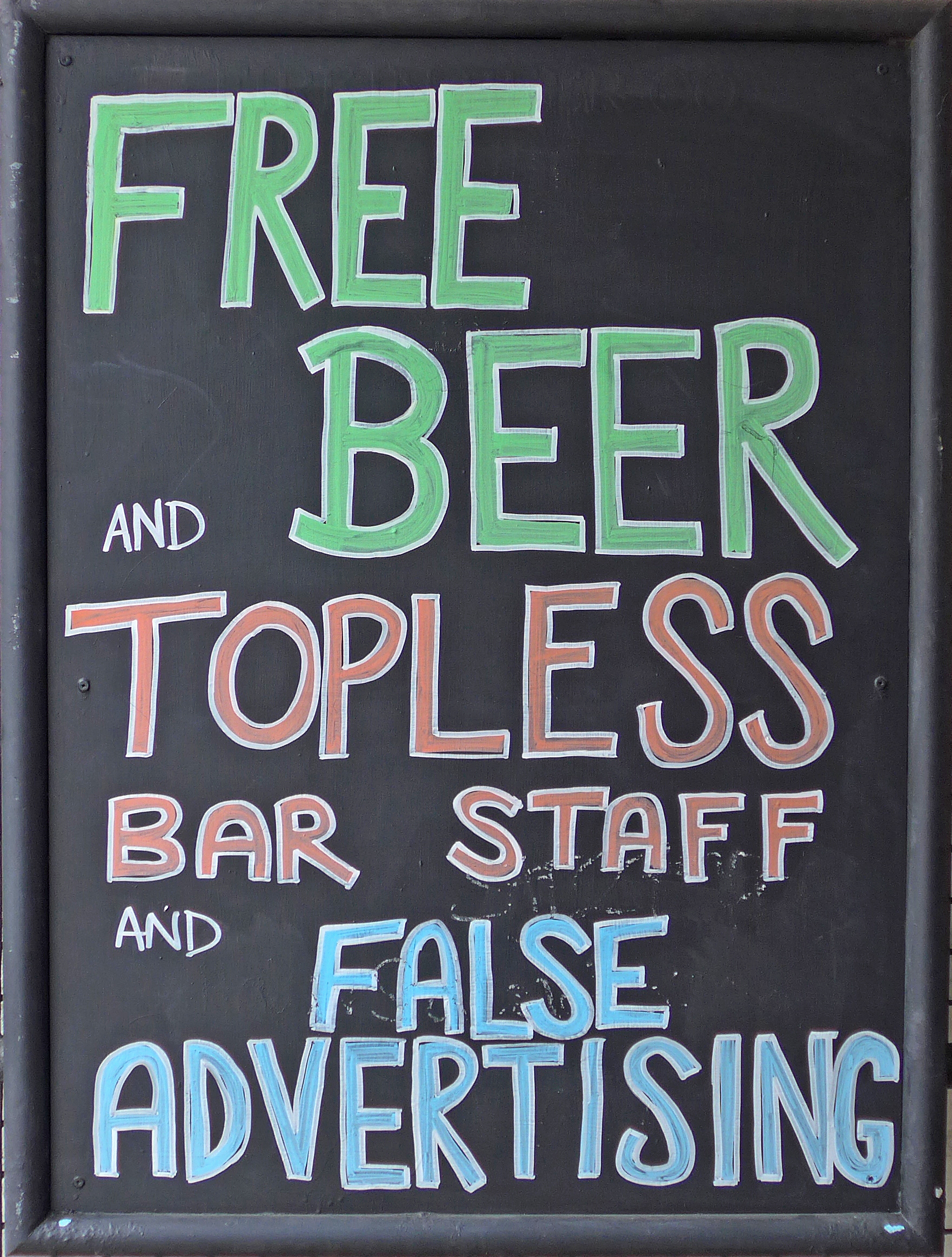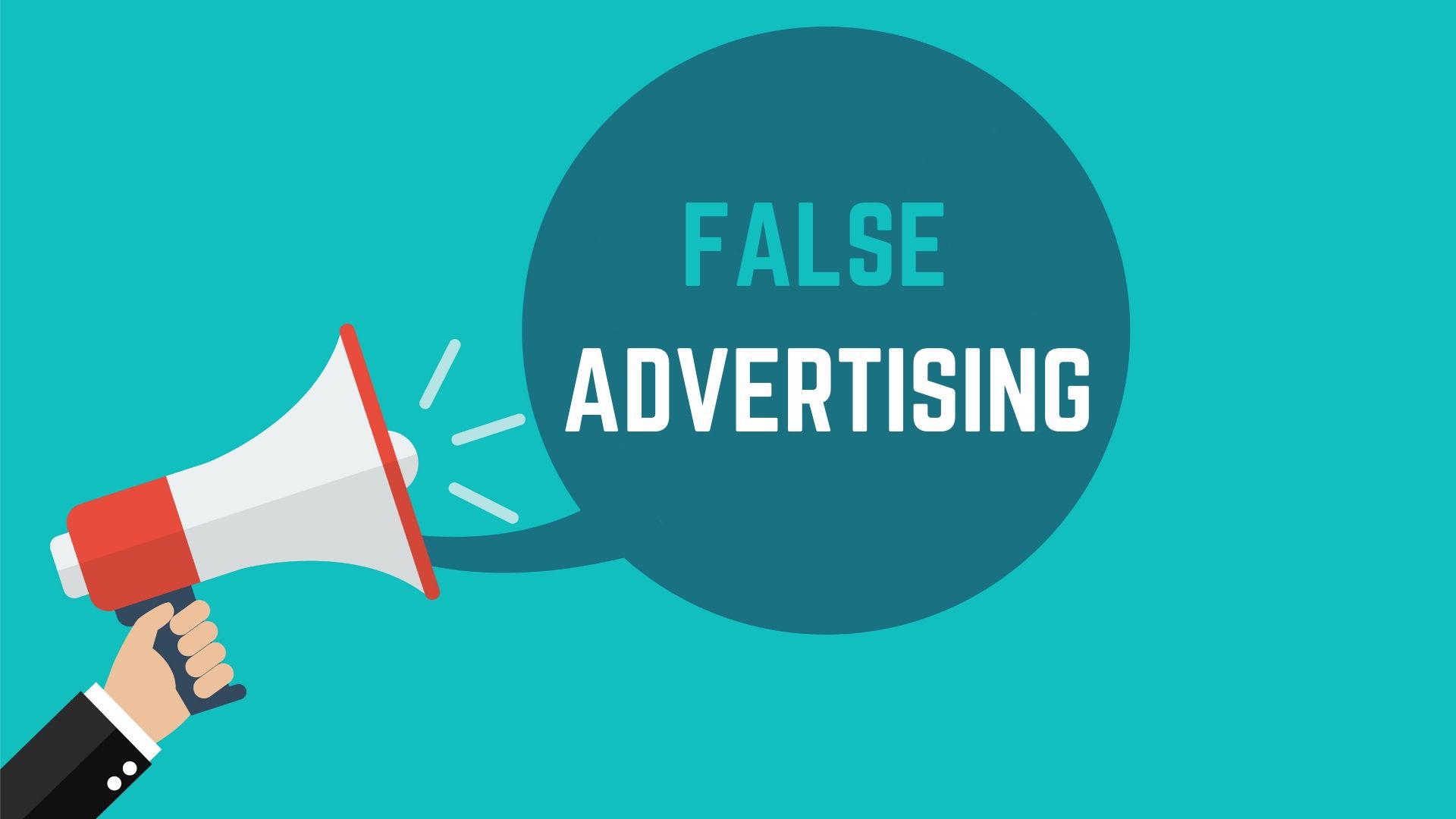Have you ever driven by one of those businesses that was “Going Out of Business!” but never actually went out of business? Or what about the sign on that store that screams “50% Off – Today Only!” but says that every day? Sound familiar?
Of course it does. We have all seen this sort of misrepresentation and fraudulent advertising time and again. In this article, we’ll take a deeper dive into the world of false advertising.
What Exactly is False Advertising?
False advertising is what it sounds like: a promotion or ad that makes false or fundamentally misleading representations. The rule is this: While you are free to make subjective claims such as “Best Bagels in Town!” It is illegal to make objectively false claims, such as “Voted the Best Bagel by the New York Bagel Association!”
What’s the difference? An objective claim is independently verifiable, while a subjective claim is merely an opinion. Being voted best bagel is a fact. It can be confirmed by the bagel association and its data from the contest. Saying you’re the best bagel in town is your opinion based on your (or your customers’) personal taste.
Need another example? Advertising “50% off!” when the sale is only 10 percent off is false advertising. Saying you have the best sale out there is an opinion, and as such, is permissible.
What Are the Penalties for False Advertising?
Penalties for false advertising range in severity—everything from a reprimand from a government agency to stiff fines (most common) to potential jail time (in extreme cases) is possible.
Essentially it is a matter of damages. Usually, when someone is the victim of a false or misleading ad, the damage is financial—they didn’t get the car for the advertised price or the business wasn’t really offering three for a dollar, whatever. This would be a civil case and the punishment most likely financial.
But sometimes, the damage is more than that and, in those cases, the fraudulent act can rise to the level of a criminal offense. For instance, say that a food label says an ice cream is dairy-free. However, it contains some amount of dairy and the person who bought it had a severe allergy and died after they ate it. That is likely a case of criminal negligence, which can, yes, lead to jail time.

Most Common Types of False Advertising
Yes, advertising is intended to put the best spin possible on a product; indeed, most ads try to make the product or service sound almost irresistible to the consumer. The trick for the business owner is that there is a fine line (or should be) between what is called the “mere puffery” that we all expect in an ad versus making claims that are downright false or misleading. Here are the most common types of false advertising:
Bait and Switch
This classic has many versions, but they all go something like this: The business advertises something at an incredible price but which, in reality, it has no intention of selling for that price.
It may be that when the customer gets to the store, they are told that the store is “sold out” of that item or they are told that a different item of much better quality is available, etc. Whatever the ruse, the idea is that the advertiser lures a potential customer in with the bait—the low, low price or the hard-to-get item—and then the salespeople foster a switch to an item that’s not hard to get or not on sale. Either way, the ad is false and misleading.
Not Really on Sale
An item advertised as being “on sale” actually has to be on sale, meaning that it had to have been sold at a higher price within the previous three months. An item that is always on sale is not on sale.
Deceptive Pictures
If you use a picture to give a false impression as to the nature and quality of your product or service, that too is false and misleading advertising. A picture must be a reasonable representation of the thing being advertised.
Deceptive Food Labeling
You cannot claim your product or dietary supplement is something that it is not: “100% organic” when it is indeed not organic, for example. Note: such labeling may also get a company in hot water with the Food and Drug Administration (FDA). Specifically, the Federal Food, Drug, and Cosmetic Act (FFDCA) enforces honesty and disclosure on food labels and in drug advertisements.
False or Dishonest Claims
False means false. If you say that your organic almond bar “contains no sugar” and it does, that is false and illegal. Disclaimers aside, the product or service must be able to do what the ad says it can do. A “miracle car wax” that claims it can remove paint scratches must be able to remove paint scratches, not just cover them up or make them dull.
Who Protects against False Advertising?
Untrue, deceptive, or false advertising falls under the purview of the FTC and is considered an “unfair trade practice.” On the state level, as seen below, false advertising is similarly illegal and, importantly, can be considered illegal both civilly and criminally.

What the Federal Government Does about False Advertising
The federal government has broad authority and a wide range of tools to reign in fraudulent advertisers. Like the IRS, the FTC will typically begin with a cease-and-desist letter demanding that the company end its fraudulent practices. If that is ignored, the feds will usually file a lawsuit asking a court to issue an order to prevent the company from further use of the disputed claims.
Also in its bag of tricks against deceptive advertising and deceptive trade practices are fines, monetary damages, and remediation. As the Luminosity case revealed, the financial consequences of proven false advertising claims can be quite substantial. In addition, the agency can order the offending company to admit its errors and even advertise such.
One final federal law to know about is the Lanham Act section 43(a). It protects businesses, essentially allowing you to sue a competitor for false or misleading ads. If you win, your competitor will have to stop putting out those false ads and may owe you damages and possibly attorneys’ fees. It’s important to note that consumers can’t take advantage of this law. It’s a specific protection for businesses and their competitors.
How to Make Sure Your Ads Are Legal
So, how can you make sure that your small business ads do not fall on the wrong side of the law? First and foremost, avoid making outright false or misleading claims. Do not advertise statements that are objectively untrue. Yes, sure, you can boast and make subjective claims—you won’t get in trouble for that (even if your hamburgers are not the best in the world). But you will get in legal trouble if you claim they are “100% beef” but actually contain filler, pork, and soy meal.
Similarly, when mentioning the competition or a competitor’s product in your ads, be sure that all such claims are objectively true. For example, it would be fine to state in your ad, “We will beat any competitor’s price!” as long as that is true. But, if in fact, you do not match a competitor’s lowest price, such a claim would not be OK.
When advertising a sale, you need to make sure that the items on sale really are less than the usual price for the past three months and that you have enough of those items in stock to handle the rush. If there are limits, mention the limits in the ad.

